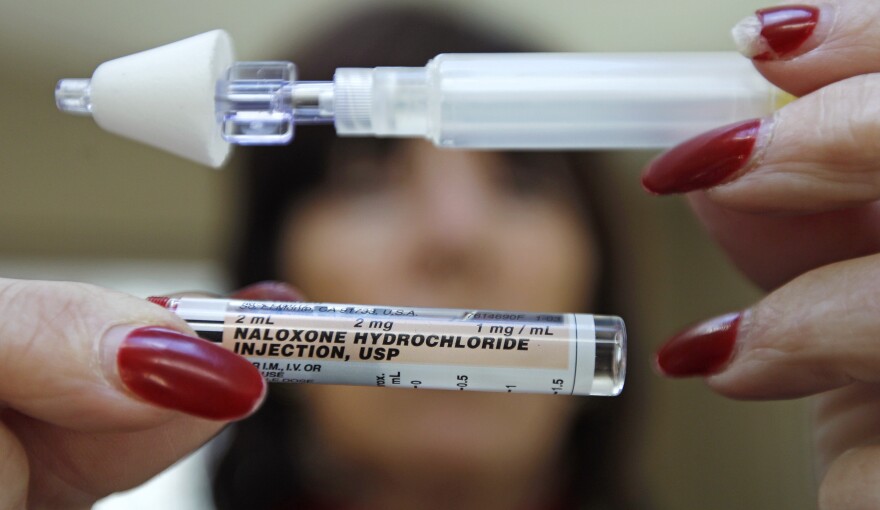Last year Suffolk County led the state in opioid overdose deaths, with 150 fatalities. In 2006 the state began training responders in the administration of Narcan, the opioid overdose medication. At the time the only way to administer the drug was through injection.
Bob Delagi, Suffolk County’s director of EMS and Public Health Emergency Preparedness, said, “In 2012 the mucosal atomizer device hit the market, and that gave us an opportunity to give Narcan by squirting through an atomizer into the nose. That exponentially opened up the amount of people who are safely able to administer Narcan.”
As of mid-June the health department's program has trained almost 6,000 overdose responders.
Maria Ansley is one of Suffolk’s newest trained responders. Like most people taking the class, she wants to keep her friends and family safe.
“I have friends who are addicts, and I’ve had friends that have passed from addiction,” she said.
But as the number of Narcan doses administered and lives saved increase—546 last year—the number of overdose deaths continues to climb.
According to Delagi, the Narcan program has saved hundreds of lives but the solution to Suffolk’s heroin crisis needs to go far beyond Narcan.
“I think the important thing to remember is that this is a problem that requires multiple, multiple layers of involvement at the local level, the state level, the federal level. There's a law enforcement component, there’s a saving lives in the street component. There's a substance abuse treatment and insurance industry component and there's many changes being made as we sit today to try to engage in what I call a whole community approach.”
On Wednesday Governor Andrew Cuomo signed a bill into law that increases funding for Narcan and limits opiate prescriptions to seven days, down from 30.

